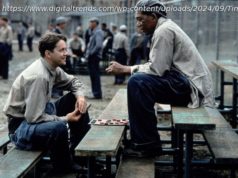The game’s now slated for a fall 2024 release.
This certainly isn’t what I expected. The troubled Vampire: The Masquerade — Bloodlines 2, which I’d just about given up on, is now set to release next fall, over four years after its initial intended launch. Paradox Interactive has tapped The Chinese Room, developer of Dear Esther and Everybody’s Gone to the Rapture, as the studio to bring the fraught RPG across the finish line.
«Fraught» doesn’t really begin to describe Bloodlines 2. The sequel to Troika’s 2004 cult classic (and one of my very favorite games) was initially supposed to come out in March 2020. Its first major delay came with the news that lead writer Brian Mitsoda (who also had a big hand in the original game) and creative director Ka’ai Cluney had been fired. Developer Hardsuit Labs was taken off the project entirely, and the game was delayed indefinitely in 2021.
The Chinese Room was brought in shortly after that, it’s now been revealed. Ahead of today’s news, I had the chance to talk to Paradox Interactive VP of World of Darkness (the broader setting of Vampire: The Masquerade) Sean Greaney, as well as Alex Skidmore, creative director of Bloodlines 2. After speaking to them, I remain uncomfortably in the dark about what happened to Hardsuit Labs’ version of Bloodlines 2, but I came away excited for The Chinese Room’s vision for Vampire: the Masquerade.
I was initially surprised at the choice of developer—The Chinese Room has thus far been known for narrative and atmosphere-heavy, gameplay-lite projects—but the more I chewed on it, the more exciting the prospect became. One of Bloodlines 1’s main appeals is its dense, textured, turn-of-the-millennium LA noir, and The Chinese Room has excelled at evoking a similar sense of place in its games.
Skidmore seemed to share my initial reaction: «This isn’t what I was expecting the Chinese Room to be working on,» he told me.
Домой
United States
USA — software Vampire: The Masquerade — Bloodlines 2 has been quietly rebuilt by Dear...






